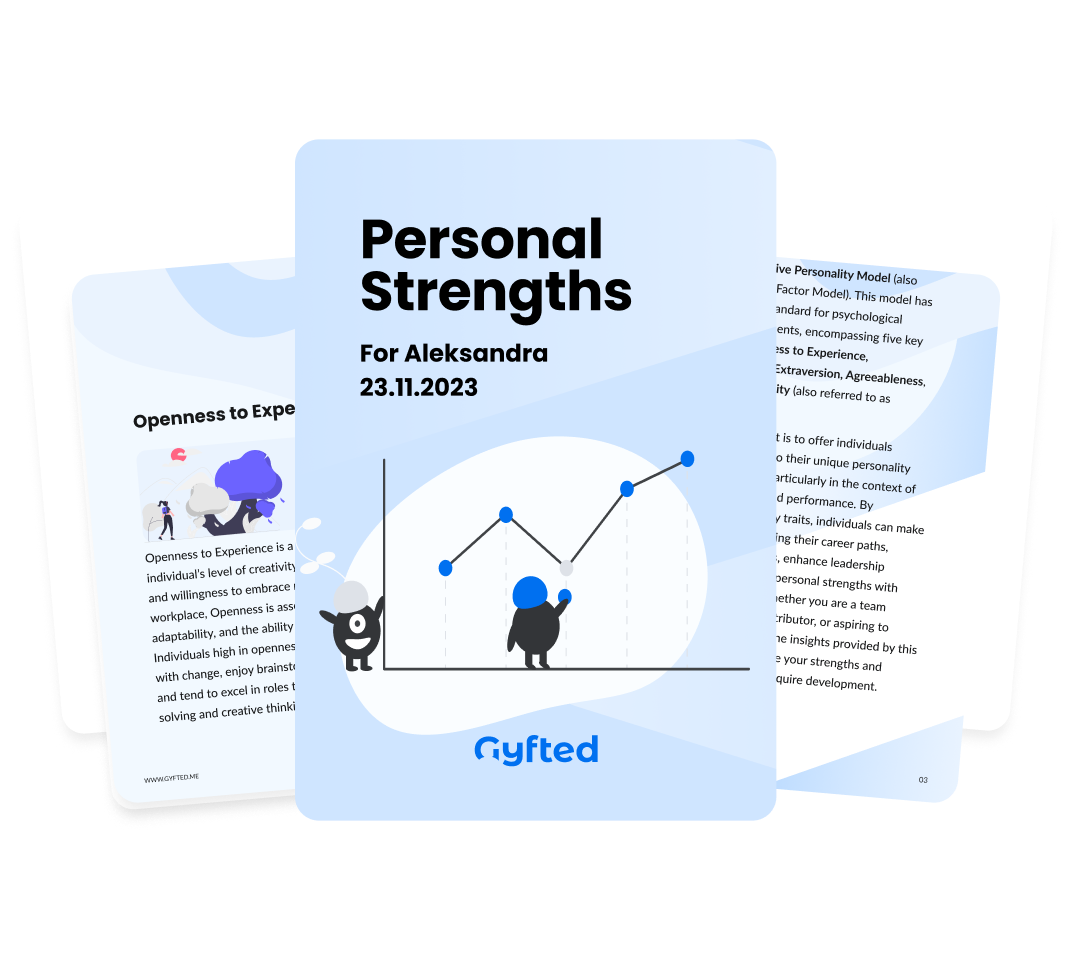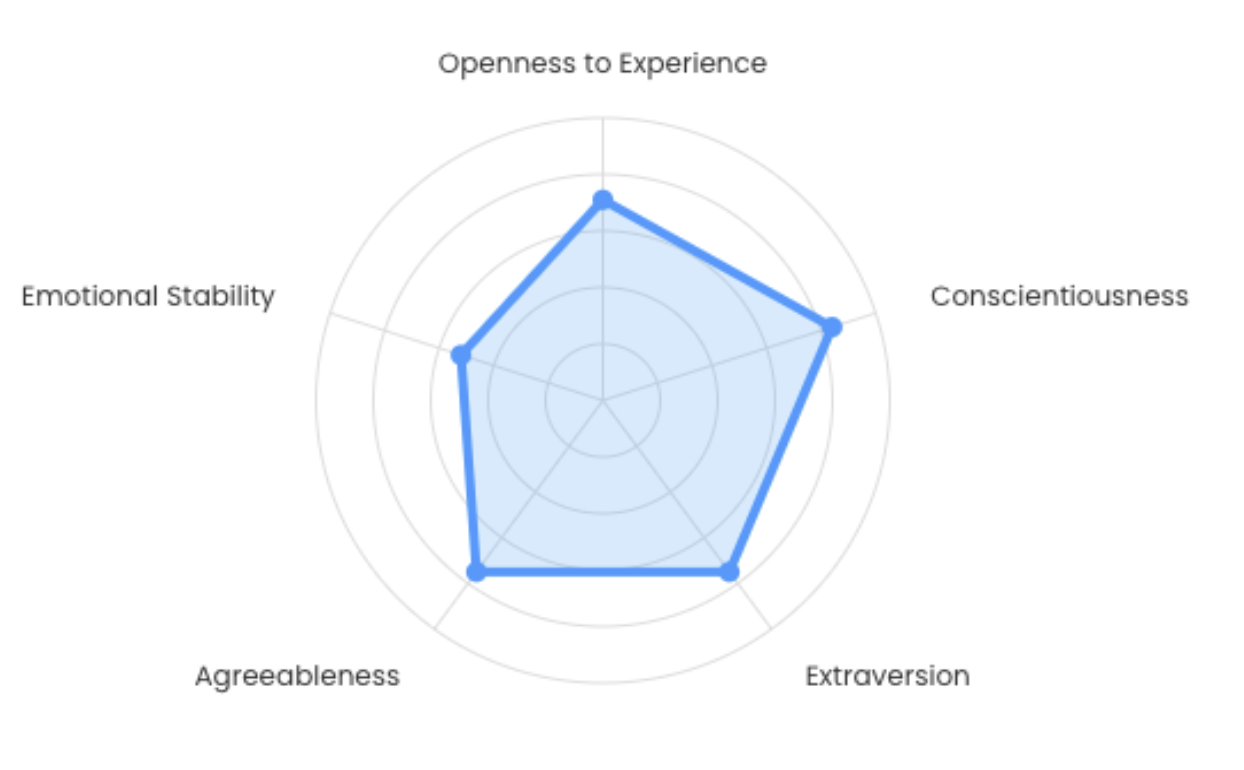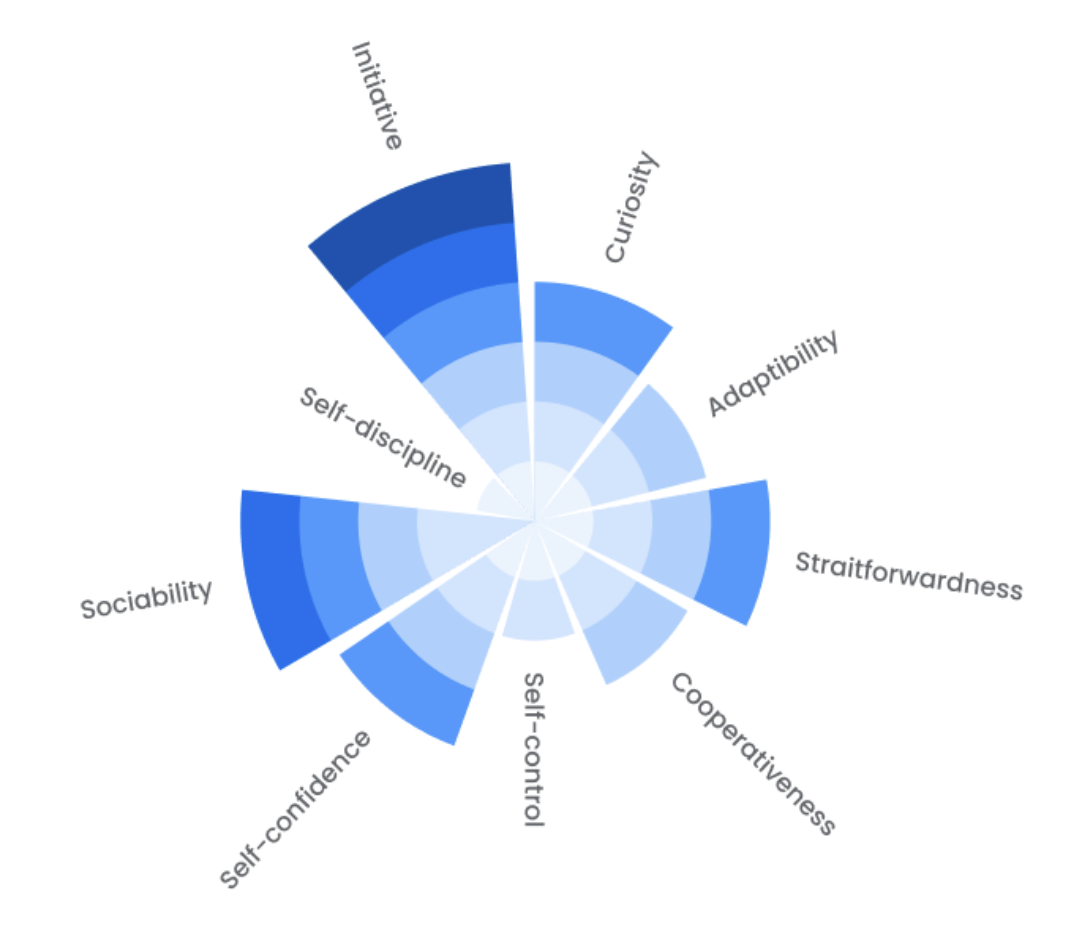Premium Personality Strengths Report
Big Five Personality Test PDF

Personal Attributes Questionnaire
Who is this Five Factor Personality Test for?
Inside this Big Five Personality Traits Test PDF

Uncover Your Personality Dimensions
To complete the assessment, users indicate the extent to which 60 forced-choice comparisons - in a rank-based assessment - best describe themselves. Our goal is to foster introspection, self-development, growth, and empowerment. The report details an individual's scores on the five core personality dimensions: Openness, Conscientiousness, Extraversion, Agreeableness, and Emotional Stability (also known as Neuroticism).

Insights on Your Character Strengths
Gain a deeper understanding of your personality spectrum. In addition to the 5 dimensions, 9 facets of 'character strengths' make up this assessment to allow for detailed feedback around any individual’s dispositions: Adaptability, Curiosity, Initiative, Self-discipline, Sociability, Self-confidence, Cooperativeness, Straightforwardness, Self-control.

Risks and Challenges
Associated with each Strength, the report outlines potential Core Risks - behaviors that may emerge when a strength is overused or expressed in an extreme manner. This helps individuals understand how their positive traits might become liabilities if they're not managed properly.

Get Practical Recommendations
The report offers insights on how to leverage one's personality type and Strengths for optimal performance. It also provides strategies for managing and mitigating potential risks associated with these strengths, in professional and personal contexts, including recommendations tailored to your unique personality profile: tips for personal development and interpersonal communication strategies that align with your natural competencies.